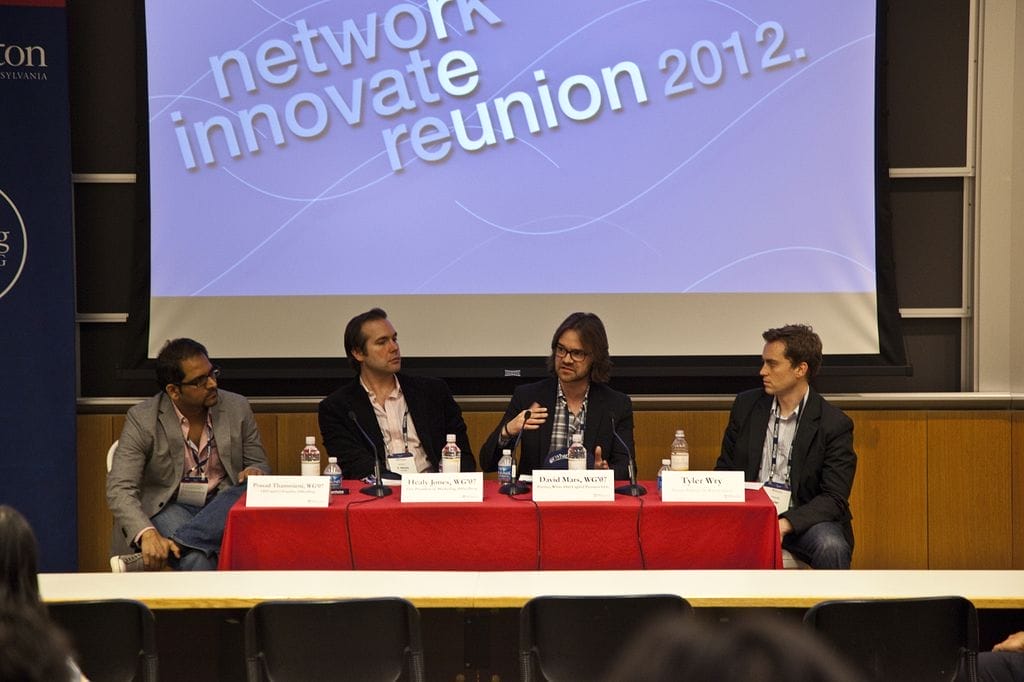Recently, I had the pleasure of moderating a panel of three WG’07 classmates behind the hot cloud storage startup OfficeDrop. I enjoyed the session for a number of reasons, not the least of which was that CEO Prasad Thammineni, Vice President of Marketing Healy Jones and David Mars, an OfficeDrop investor from White Owl Capital Partners, provided a vivid illustration of one of the strategies that we teach about in Wharton entrepreneurship classes: the lean startup.
For those of you who aren’t familiar with the concept, running lean is based on the idea that startups need to be nimble and agile in order to outmaneuver better funded and established competitors. The trick is to engage in repeat “build, measure, learn” cycles, where you build a minimal viable product, launch it, learn from how customers respond, and repeat (over and over and over again). Through this, a firm can tailor its products discretely to what customers actually want, pivoting or persisting depending on the feedback that they get.
Prasad put it well: “You want to make sure you don’t spend the next five years building something that no one wants.”
To this end, OfficeDrop has made a number of lean pivots that have put them in a strong competitive position. As per Healy, “Our first major pivot happened when we launched an MVP Windows desktop scanner software. This was a super basic program that connected a few scanner models to cloud storage. … People really liked it. One of our initial theses was that the cloud meant people no longer had to install software. But here people were downloading and installing this app. It was crazy. Secondly, our thesis was that people did not like the drudgery of scanning. But guess what, people really liked to scan with our software. Second thesis failed! So we used this info to help push us from a mail-in scanning service with a web-only software to an app-based digital filing system.”
Now, as impressed as I was to see how the OfficeDrop team was using lean principles to position themselves for success, I was also struck that their overall Wharton training was instrumental in executing this strategy. The following pattern emerged during the session: first, a question from the audience, followed by a response from the panelists, with Healy saying, “And that’s why class ____ was important.”
For me, this drove home the point that entrepreneurship isn’t really that different than any other area of business—training matters. Anyone can start a company, and many scientists and entrepreneurs who don’t know the first thing about business become successful entrepreneurs. On average, though, the startups that are most likely to succeed have some serious business chops behind them. I have no doubt that OfficeDrop’s ability to build, measure and learn effectively is related to the fact that the founders know how to understand customer needs, market well, analyze feedback with formal statistics and recognize that customers (not coders) are the focal point for product development—all things that we teach at Wharton.

























